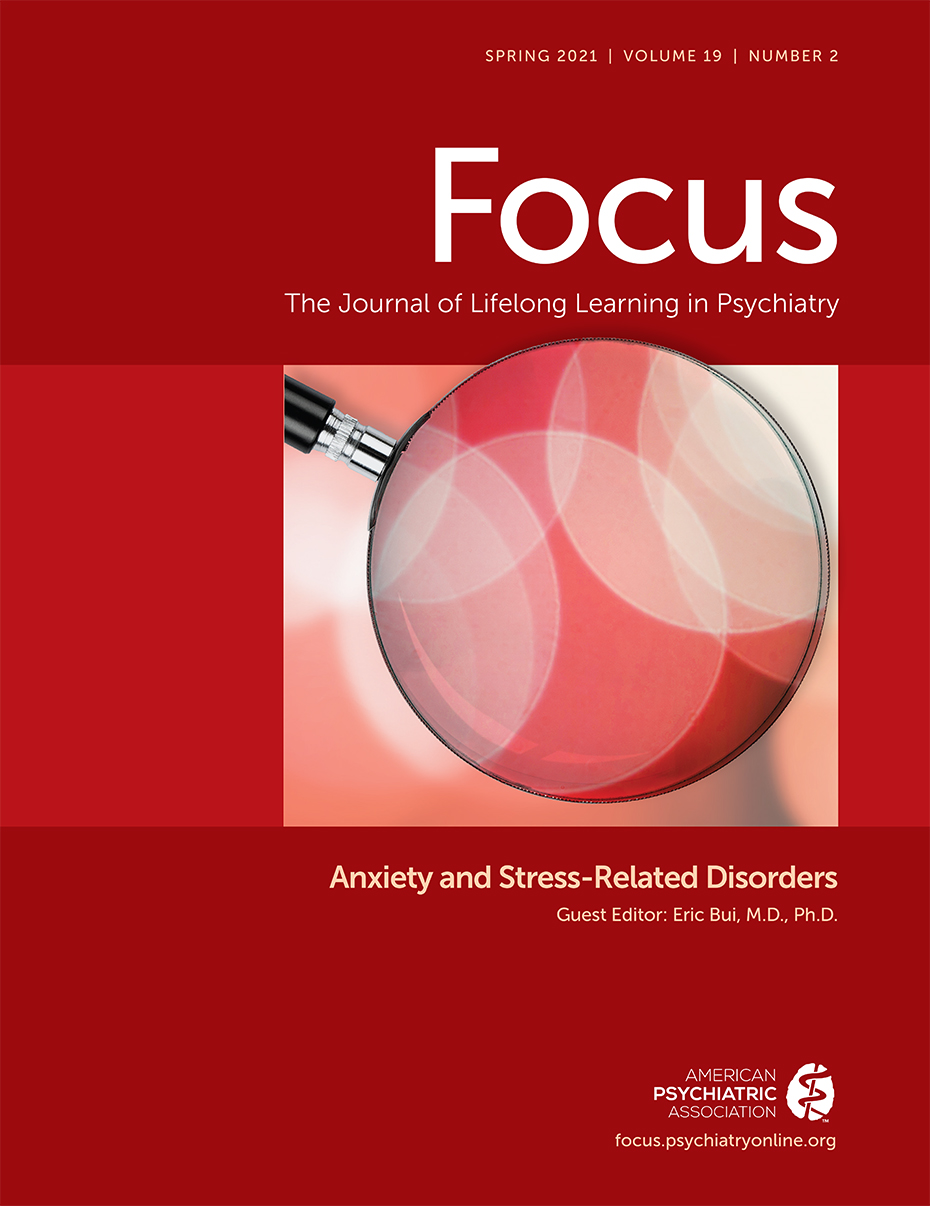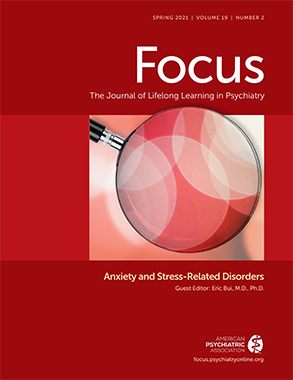Cognitive-Behavioral Treatments for Anxiety and Stress-Related Disorders
Abstract
Cognitive Interventions
Behavioral Interventions
CBT for Specific Disorders
Panic Disorder
Generalized Anxiety Disorder
Social Anxiety Disorder
Obsessive-Compulsive Disorder
Posttraumatic Stress Disorder
Prolonged Grief Disorder
Transdiagnostic Approaches to CBT for Anxiety Disorders
Complementary Approaches for CBT
Mindfulness
Pharmacotherapy
D-Cycloserine in Conjunction With Exposures
Novel Delivery Methods
Conclusions
References
Information & Authors
Information
Published In
History
Keywords
Authors
Competing Interests
Metrics & Citations
Metrics
Citations
Export Citations
If you have the appropriate software installed, you can download article citation data to the citation manager of your choice. Simply select your manager software from the list below and click Download.
For more information or tips please see 'Downloading to a citation manager' in the Help menu.
View Options
View options
PDF/EPUB
View PDF/EPUBLogin options
Already a subscriber? Access your subscription through your login credentials or your institution for full access to this article.
Personal login Institutional Login Open Athens loginNot a subscriber?
PsychiatryOnline subscription options offer access to the DSM-5-TR® library, books, journals, CME, and patient resources. This all-in-one virtual library provides psychiatrists and mental health professionals with key resources for diagnosis, treatment, research, and professional development.
Need more help? PsychiatryOnline Customer Service may be reached by emailing [email protected] or by calling 800-368-5777 (in the U.S.) or 703-907-7322 (outside the U.S.).

